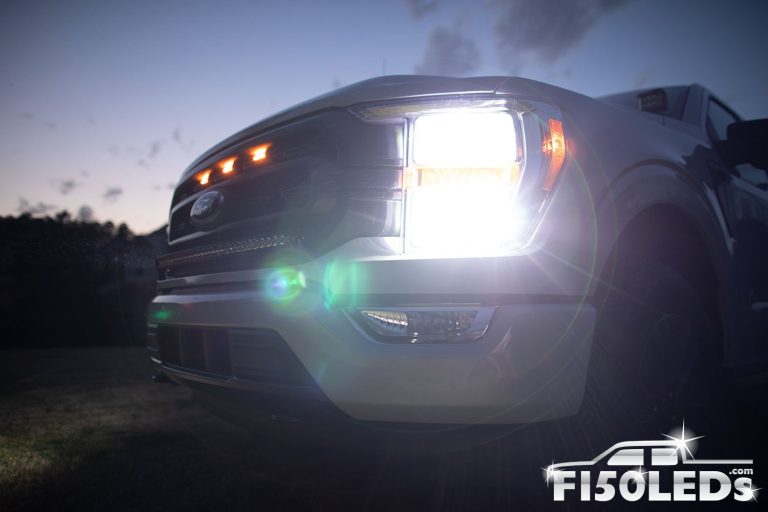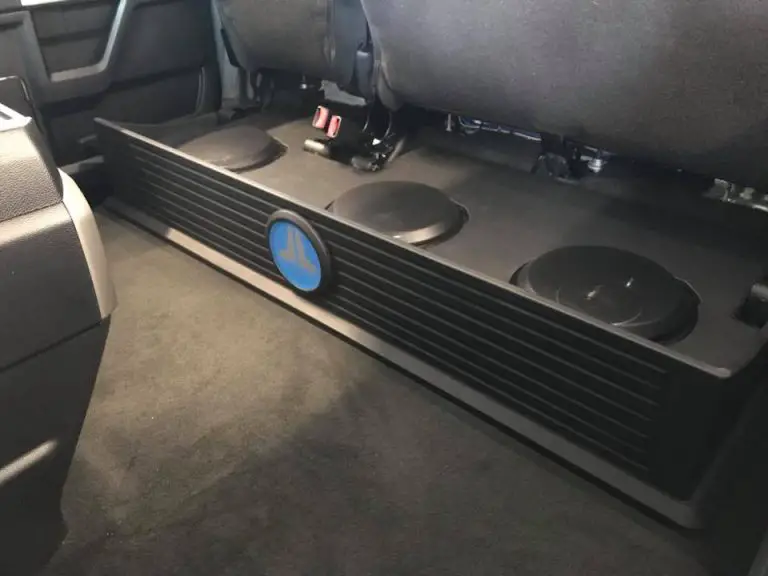Can I Use 5w30 Instead Of 0w20? (Honest Review)
Choosing the right motor oil for your vehicle is an essential aspect of proper maintenance. One common question that arises is whether it’s acceptable to use 5W-30 instead of 0W-20, especially when the latter is recommended by the manufacturer. Understanding the differences and implications between these two oil viscosities is crucial for making an informed decision about the oil you use in your engine.
In this article, we will explore the characteristics of 0W-20 and 5W-30 motor oils and the factors to consider when deciding between them. We will delve into their viscosity ratings, performance in different temperature conditions, and the potential effects on engine protection and fuel economy. By gaining a comprehensive understanding of these oils, you will be equipped to make an educated choice that aligns with your vehicle’s requirements and driving conditions.
However, it is important to note that the information provided here serves as a general guide, and it is always recommended to consult your vehicle’s owner’s manual or seek professional advice for specific recommendations tailored to your vehicle’s needs.
How did the 5w30 oil perform in comparison to the 0w20 oil?
The 5w30 oil performed satisfactorily in the analysis, displaying minimal fuel dilution and addressing some concerns regarding viscosity degradation. However, the data indicated a notable reduction in viscosity over a span of 4000 miles. The individual noted that while the oil may not typically reach 100 degrees Celsius in the oil pan, it could surpass this temperature in the turbocharger. Based on this evaluation, the person is considering transitioning to a stronger 5w30 oil, provided a reliable source can be obtained at an affordable price. Ultimately, despite some viscosity concerns, the individual concluded that switching to the 5w30 oil offered significant advantages.
Can I Use 5w30 Instead Of 0w20?
Using 5W-30 instead of 0W-20 motor oil depends on several factors, such as the specifications recommended by your vehicle manufacturer and the climate conditions in which you drive.
0W-20 and 5W-30 are both types of multi-grade oils, which means they offer different viscosity levels depending on the temperature. The first number (0W or 5W) indicates the oil’s flowability in cold temperatures, while the second number (20 or 30) represents its viscosity at operating temperatures.
In recent years, many vehicle manufacturers have started recommending 0W-20 oil for improved fuel efficiency and engine performance. This is especially true for newer car models. The lower viscosity of 0W-20 oil allows for easier engine start-up and better lubrication during cold weather conditions, while still providing adequate protection when the engine is at operating temperature.
Using 5W-30 oil instead of 0W-20 may not cause any immediate harm to your engine, but it’s generally advisable to follow the manufacturer’s recommendations. Using a different oil viscosity than what is specified may impact your vehicle’s performance, fuel efficiency, and even potentially void your warranty.
If you have concerns or are considering switching to a different oil, it’s best to consult your vehicle’s owner’s manual or contact the manufacturer directly for guidance specific to your make and model. They can provide you with the most accurate information regarding the appropriate oil to use in your vehicle.
What is a substitute for 0W-20 oil?
The ideal substitute for 0W-20 oil depends on your situation and priorities. Here’s a breakdown of two options:
- 5W-20 Oil:
- This is the closest alternative in terms of viscosity. It provides similar cold-start performance to 0W-20 but might offer slightly less fuel efficiency.
- Important Note: Only use 5W-20 oil as a substitute if your vehicle’s manual explicitly mentions it as an acceptable alternative. Using an oil with a different viscosity than recommended can affect engine performance and potentially void your warranty.
- Manufacturer-Approved Alternative:
- Consult your owner’s manual for any manufacturer-recommended alternatives to 0W-20 oil. Some carmakers might specify a different oil type suitable for certain climates or driving conditions.
Remember:
- Using the oil type recommended by your vehicle’s manufacturer is always the safest option. It ensures optimal performance, fuel efficiency, and protection for your engine.
- If you’re unsure about using a substitute, consult a qualified mechanic or your car dealership’s service department for guidance.
What Happens If You Put 5w30 Instead Of 0w20?
Using 5W-30 instead of 0W-20 engine oil may have some implications on your vehicle’s performance and longevity. Here’s what you need to know:
1. Viscosity
The numbers in the oil specification, such as 0W-20 or 5W-30, represent the oil’s viscosity or thickness. The “W” stands for winter, indicating the oil’s performance in colder temperatures. The first number (0W or 5W) represents the oil’s viscosity at low temperatures, while the second number (20 or 30) represents the viscosity at higher temperatures.
2. Thicker oil
In this case, 5W-30 oil is thicker than 0W-20 oil. Thicker oil can affect how it flows through the engine and reaches various components, such as bearings and other moving parts. The thicker oil might not flow as quickly or efficiently in colder temperatures, which could result in reduced lubrication during start-up.
3. Fuel efficiency
Automakers recommend specific oil viscosities, such as 0W-20, for a reason. Thinner oils, like 0W-20, are often recommended to improve fuel efficiency and overall engine performance. Using a thicker oil, like 5W-30, may lead to a small decrease in fuel efficiency.
4. Warranty implications
If your vehicle is under warranty, it’s essential to follow the manufacturer’s recommended oil specifications. Deviating from the recommended oil viscosity, such as using 5W-30 instead of 0W-20, may void certain aspects of your warranty coverage.
5. Climate considerations
The choice of oil viscosity depends on the climate you’re in. If you live in an area with extremely cold temperatures, using a thicker oil like 5W-30 might not be suitable as it could cause difficulties during cold starts. In such cases, it’s better to stick to the recommended 0W-20 oil.
Can I Mix 5w30 With 0w20?
Mixing different viscosities of engine oil, such as 5W-30 and 0W-20, is generally not recommended. Engine oils have specific viscosity ratings that are designed to provide optimal lubrication under different temperature and operating conditions.
The numbers in the oil viscosity rating represent its flow characteristics at different temperatures. The first number (e.g., 5W or 0W) indicates the oil’s viscosity at low temperatures, while the second number (e.g., 30 or 20) represents its viscosity at high temperatures.
Mixing different viscosity oils can result in an oil blend with unpredictable viscosity characteristics, which can affect the oil’s ability to properly lubricate engine components. It may not provide the necessary protection and could potentially lead to engine damage or poor performance.
It is always best to follow the manufacturer’s recommendations for the type and viscosity of oil to use in your specific vehicle. If you’re uncertain about which oil to use, consult your vehicle’s owner’s manual or reach out to a qualified mechanic or dealership for guidance.
What Is The Difference Between 5w30 And 0w20 Oil?
The difference between 5W-30 and 0W-20 oil lies in their viscosity ratings and their performance characteristics under different temperature conditions.
Viscosity refers to the oil’s resistance to flow. The first number in the oil’s viscosity rating represents its performance at low temperatures, while the second number represents its performance at high temperatures.
5W-30 oil has a higher viscosity than 0W-20 oil. The “5W” indicates that it has a lower viscosity at low temperatures compared to 0W-20 oil. This means that 5W-30 oil flows more easily when the engine is started in colder conditions, allowing it to reach critical engine parts quickly for lubrication and protection. The “30” indicates its viscosity at high temperatures, suggesting that it maintains its viscosity and lubricating properties when the engine is operating at normal or elevated temperatures.
On the other hand, 0W-20 oil has a lower viscosity at both low and high temperatures compared to 5W-30 oil. The “0W” rating indicates that it has superior flow characteristics at extremely low temperatures, ensuring easy startup and lubrication in cold climates. The “20” rating signifies that it remains thin and provides efficient lubrication even at high temperatures.
Automakers may recommend different viscosity oils based on the specific engine design, tolerances, and operating conditions of a vehicle. While both 5W-30 and 0W-20 oils can provide adequate lubrication, using the recommended oil viscosity for your vehicle ensures optimal performance and protection.
It’s essential to consult your vehicle’s owner’s manual or reach out to a qualified mechanic or dealership to determine the recommended oil viscosity for your specific vehicle.
Potential Drawbacks of Using 5W30:
- Reduced Fuel Efficiency: 0W20 oil is thinner and offers better fuel economy, especially during cold starts. Switching to 5W30 might see a slight decrease in gas mileage.
- Lessened Cold-Start Performance: The lower weight (0W) of 0W20 oil allows it to flow more easily at lower temperatures, protecting your engine during cold starts. 5W30 might not provide the same level of protection in freezing conditions.
Here’s the Bottom Line:
- Sticking with the manufacturer-recommended 0W20 oil is always the safest option. It guarantees optimal performance, fuel efficiency, and wear protection for your engine as designed by the engineers.
- If you’re unsure about using a substitute, prioritize consulting a qualified mechanic or your car dealership’s service department. They can advise you based on your specific vehicle and climate.
- Only use 5W30 as a substitute if your owner’s manual clearly states it’s an acceptable alternative. Never switch to a higher viscosity oil (e.g., 10W30) without explicit manufacturer approval.
Remember, using the wrong oil type can affect your engine’s performance, fuel efficiency, and potentially void your warranty. Play it safe and prioritize the oil recommended for your car.
What were the driving habits and conditions during the testing period?
During the testing period, the driver started the vehicle in eco mode and allowed it to warm up for the first 15 minutes. The majority of the driving consisted of 85% highway miles. The driver noted that using 0w20 oil did not create an adequate seal in the cylinder, leading to significant blow-by and fuel dilution reaching 1.8% after only 2000 miles. The driver expressed concerns about the potential impact on fuel dilution if the vehicle had been driven for longer distances as recommended by many manufacturers. This feedback suggests that the driving habits and conditions included frequent warm-ups, highway driving, and the use of eco mode, all contributing to the observed issues with fuel dilution.
What were the results of testing 0w20 vs 5w30 oil on an Accord 2.0T engine?
The results of testing 0w20 versus 5w30 oil on an Accord 2.0T engine revealed significant differences. When using 0w20 oil, it was observed that the oil did not create an effective seal in the cylinder, leading to high blow-by and fuel dilution reaching 1.8% in just 2000 miles. However, after switching to 5w30 Valvoline oil, which was described as a preferred oil due to its cost-effectiveness and high mileage full synthetic properties, the results showed a notable improvement. With the 5w30 oil, there was a substantial reduction in fuel dilution with almost no significant issues in this regard. Nevertheless, a concern that arose was viscosity degradation. The viscosity of the 5w30 oil showed a remarkable drop from the expected 10.7 cSt at 100 degrees to 8.3 cSt after 4000 miles, indicating a 22% reduction. Overall, based on the data collected, it was concluded that switching to a 5w30 oil provided superior performance compared to using 0w20 oil in the Accord 2.0T engine.
Why does Honda recommend specific oil viscosities for emissions compliance?
Honda recommends specific oil viscosities for emissions compliance to ensure that the engine operates within optimal parameters that help reduce harmful emissions. By using the right oil viscosity, Honda engines can function efficiently without sacrificing environmental standards.
How does fuel dilution affect Honda 1.5T engines?
Fuel dilution can have a significant impact on Honda 1.5T engines. The industry standard for fuel dilution is typically around 2%. However, it is important to note that some reports suggest that this figure may be understated due to certain lab methodologies. The effects of fuel dilution should not be underestimated, as evidenced by incidents of 1.5T engine failures. Moreover, Honda recommends the use of 5w30 oil in certain regions, indicating variations in engine maintenance practices globally. It is essential to recognize that external factors, such as legal and financial constraints, can influence the research and development efforts of Honda, potentially affecting the quality and longevity of their engines.
FAQ:
Q: Can I substitute 5W-30 oil for 0W-20 oil in my vehicle?
A:While it is generally not recommended to use a different viscosity oil than what is recommended by the vehicle manufacturer, in some cases, using 5W-30 instead of 0W-20 oil may be acceptable.
Q: Why is 0W-20 oil recommended for some vehicles?
A:Automakers may recommend 0W-20 oil for specific vehicles due to its superior flow characteristics at low temperatures and its ability to provide efficient lubrication in a wide range of operating conditions. It can help improve fuel efficiency and protect the engine components during startup.
Q: What are the potential consequences of using 5W-30 instead of 0W-20 oil?
A:Using a higher viscosity oil like 5W-30 instead of 0W-20 may lead to several issues. Firstly, the oil may not flow as easily during cold starts, potentially causing increased wear on engine components. Additionally, the oil may not provide sufficient lubrication and heat dissipation at higher temperatures, potentially leading to reduced engine performance, increased oil consumption, and higher operating temperatures.
Q: When might it be acceptable to use 5W-30 oil instead of 0W-20 oil?
A:In some situations, such as emergencies or when the recommended oil is not readily available, using 5W-30 oil temporarily might be acceptable. However, it is important to consult your vehicle’s owner’s manual or contact a qualified mechanic for guidance specific to your vehicle. They can provide the best advice based on your vehicle’s engine design, tolerances, and operating conditions.
Q: What is the best course of action if I accidentally added 5W-30 oil instead of 0W-20 oil?
A:If you mistakenly added 5W-30 oil instead of the recommended 0W-20 oil, it is generally advisable to have the oil changed as soon as possible. This ensures that the engine receives the proper viscosity oil for optimal performance and protection. Additionally, it’s a good practice to inform your mechanic about the oil change, as they may want to inspect the engine for any potential issues.
Q: Can I use 5w30 instead of 0w20 Volvo?
Maybe. It depends on your Volvo model and the climate you live in. Check your owner’s manual first.
If the manual lists 5W30 as an acceptable alternative, then you can use it in a pinch. But generally, it’s best to stick with 0W20 for optimal performance and fuel efficiency as recommended by Volvo.
Q: Can I use 5w30 instead of 0W20 Toyota Camry
Maybe. Similar to Volvo, it depends on your Camry’s model year and climate. Refer to your owner’s manual for the recommended oil type.
While 5W30 might be acceptable in some situations, 0W20 is usually preferred for Toyotas to optimize performance and fuel economy.
Q: Can I use 5w30 instead of 0w20 Subaru
For most Subaru models, using 5W30 instead of 0W20 might be acceptable, especially in warmer climates. However, there are key things to consider:
- Consult your manual: Always check your Subaru owner’s manual for the recommended oil type. It will specify if 5W30 is an approved alternative for your specific model and climate.
- Potential drawbacks: While 5W30 might work, it may offer slightly less fuel efficiency and cold-weather performance compared to 0W20.
- Stick with 0W20 for best results: For optimal performance and fuel economy as recommended by Subaru, using 0W20 is generally the preferred choice.
Q: Using 5w30 instead of 0w20 toyota sienn
Maybe, but prioritize 0w20. Check your Sienna’s manual. 5w30 might be okay in some situations, but 0w20 is generally preferred for Toyotas for optimal performance and fuel efficiency.




